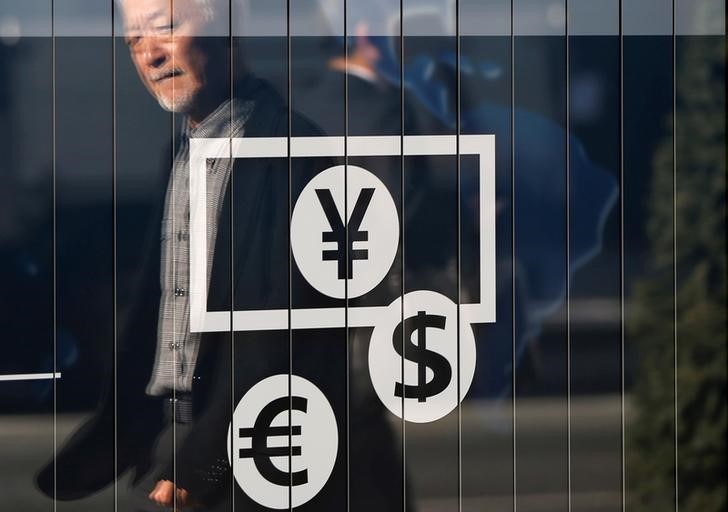Investing.com - The U.S. dollar rose to the day’s highs against a basket of the other major currencies on Thursday despite mixed U.S. economic reports, as the euro and sterling weakened.
The U.S. dollar index, which measures the greenback’s strength against a trade-weighted basket of six major currencies, was up 0.27% at 93.10 by 08:53 AM ET (12:53 GMT), extending its rebound from Tuesday’s low of 91.55, the weakest since January 2015.
EUR/USD was down 0.34% to 1.1842, having retreated from Tuesday’s highs of 1.2069, the strongest level since Jan. 2 2015.
The euro remained on the back foot following reports that a growing number of European Central Bank officials are concerned by the recent strength of the currency. The strong euro is a headache for the ECB at a time when it is preparing to start deliberations on scaling back monetary stimulus.
Earlier in the day, data showed that inflation in the euro area rose to an annualized 1.5% in August, but underlying inflation remained unchanged at 1.3%.
The dollar was trading near two-week highs against the yen, with USD/JPY at 110.48, up 0.22% for the day.
Data on Thursday showed that U.S. consumer spending rose slightly less than expected in July and annual inflation increased at its slowest pace since late 2015. Another report showed that the number of people who filed for unemployment assistance in the U.S. last week rose less than expected.
The reports came a day after data showing that U.S. economic growth was stronger than expected in the second quarter and the U.S. private sector hiring increased by the most in five months in August.
The upbeat data bolstered expectations for a solid U.S. jobs report later this week.
A solid jobs report would help underline the Federal Reserve’s case for raising interest rates again this year.
Diminished expectations for a third rate hike this year have weighed on the dollar by making U.S. assets less attractive to yield-seeking investors.
Sterling was lower against the greenback, with GBP/USD down 0.38% to 1.2874 after Michel Barnier, the European Union’s chief Brexit negotiator, said that no “decisive progress” had been achieved after the third round of talks in Brussels.
